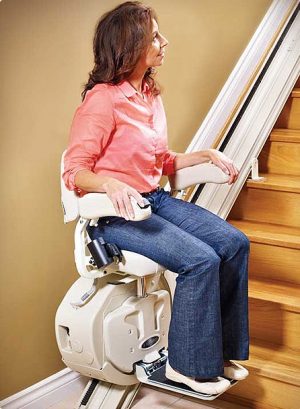Medical emergencies often seem like the end of the world. It’s obviously a scary time for the person who’s directly experiencing it. But the person’s loved ones are usually worrying and suffering in their own way. A severe medical issue can quickly become the center of everyone’s life. But oftentimes, it can also seem like it turns into a happy ending within the blink of an eye. Progress can sometimes be just as sudden as an initial injury.
The patient and his family are finally told that he can go home. The immediate risks are a thing of the past and everyone is ready for things to return to normal. They might have a full life left to look forward to. Or they might leave the hospital with an understanding that only a handful of years remain. But in either case, everyone’s usually just focused on the fact that the patient has quite a bit of life still left to live.
The transition to limited mobility
 However, this is often just the start of a difficult transition. People fighting for their lives often return home with severely limited mobility. And everyone involved comes to understand that mobility issues are quite a bit more complex than the earlier life and death struggles. This is further complicated when someone faces an inevitable decline in their health once they return home. And this experience isn’t just limited to people who’ve experienced an accident, injury, or life-threatening illness. People often see this exact situation develop in loved ones simply due to advancing age.
However, this is often just the start of a difficult transition. People fighting for their lives often return home with severely limited mobility. And everyone involved comes to understand that mobility issues are quite a bit more complex than the earlier life and death struggles. This is further complicated when someone faces an inevitable decline in their health once they return home. And this experience isn’t just limited to people who’ve experienced an accident, injury, or life-threatening illness. People often see this exact situation develop in loved ones simply due to advancing age.
One of the larger issues simply comes down to lack of information on the available resources. For example, an EasyClimber stair lift can take care of a huge number of issues for people with limited mobility. But at the same time, it’s not especially well known among the general population. In fact, most people aren’t aware of just how much can be done with home health care these days. It can often totally eliminate any need for assisted living centers.
How technology can help people regain independence
This is best illustrated by returning to the earlier example of stair lifts. People usually take their innate capabilities for granted right up until the moment when they’re lost. And few people ever really stop to consider how hard it would be to get around a multi-story house if they have trouble walking and going up and down the stairs.
This can be especially heartbreaking for people who’ve had to struggle to even regain partial mobility. Going from full bed rest to the use of a walker can feel like having the world returned to you. But a simple set of stairs can suddenly make it feel like all of that work was for nothing. And it’s equally heartbreaking for the person’s loved ones. Nobody wants to see a loved one who’s regained their hope suddenly losing it again. But stair lifts can re-frame that entire sequence of events.
Moving medical care into the home
Stair lifts are just one part of a larger focus on mobile health options. These tools can provide people with an astonishing level of independence. In fact, they’re often enough to allow people to live at home rather than within an assisted living center.
Once again, consider a loved one who’s lived in the same home for years or even decades. It’s where they’re happy, where they’ve raised a family and created millions of great memories. Losing their homes can feel just as painful as whatever medical battle they’re currently engaged in. And a staircase really is an impenetrable barrier for most people with impaired mobility.
But a stair lift offers an innovative solution. It simply removes the single factor that made a home difficult to get around in. And the end effect isn’t simply about getting up the stairs. The lift also returns a feeling of independence to your loved one. They’re able to not only live in an area where they feel happy, but they’re also able to use that newfound mobility to regain a sense of independence.
The drive for freedom
Ultimately, you’re left in a position where most of the healing is up to your loved one. There’s often not much one can do at that point. The main gift one can give is a sense of freedom; the freedom to move around in their environment, which is also the sense of freedom they need to explore all of their options in life. The right mobility aids can offer exactly that type of freedom. It keeps a sense of curiosity and independence alive within them.
For many people, this translates to keeping up with difficult treatment routines. And nearly as important, they’re able to stay in the same environments that they have grown used to. These types of social interactions are also invaluable for keeping spirits up and progress steady. All of these elements can work together to ensure your loved one can do everything from relaxing at home to entertaining guests.
Photo Credit
Photos from Easy Climber
Contributing Author Bio
Ashley Andrews
Ashley Andrews is an entrepreneur and blogger. She now lives in San Diego, CA and is happily self employed. She enjoys writing about anything that catches her interest, especially tech and entrepreneurship.



Please Share Your Thoughts - Leave A Comment!